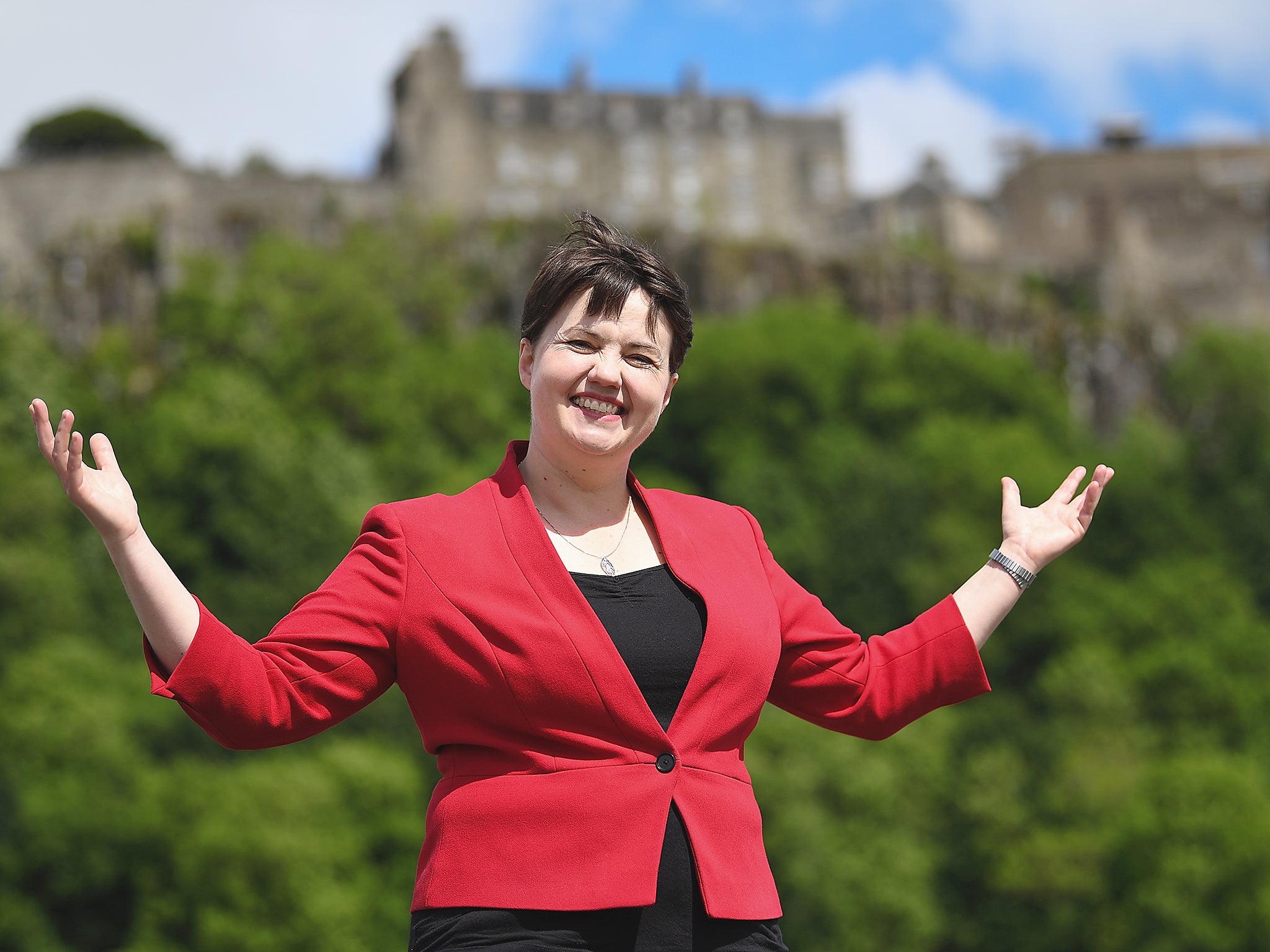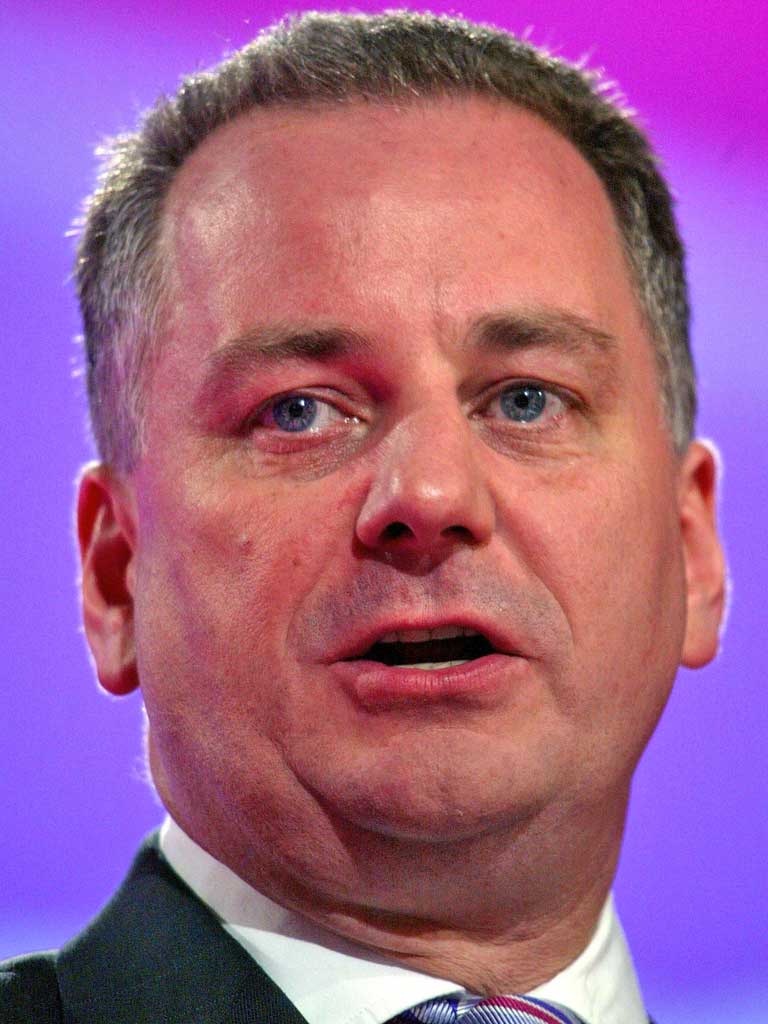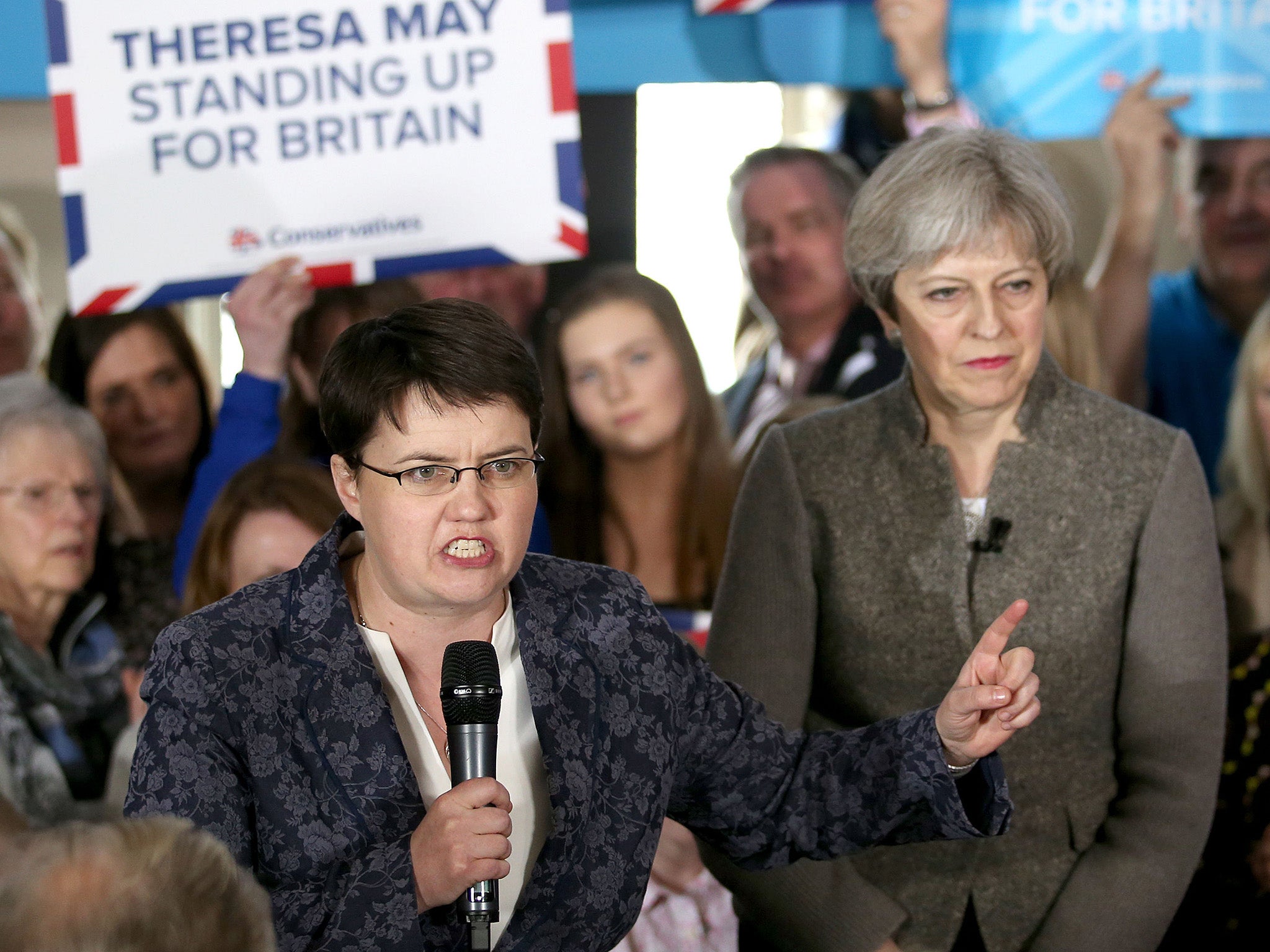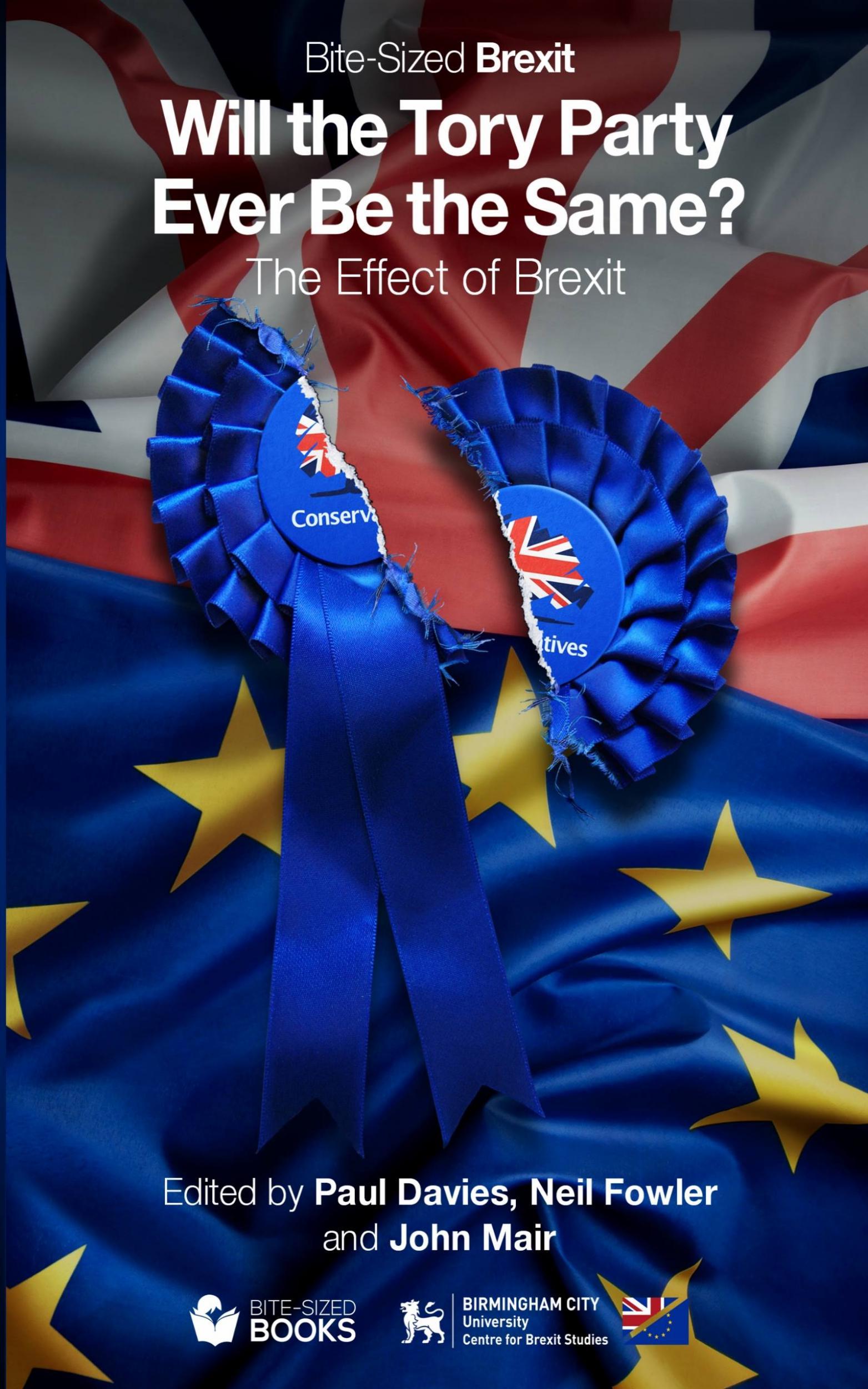For Scottish Conservatives, the prospect of a second referendum on Brexit opens a large can of worms
While Brexit has divided the Conservative Party south of the border, in Scotland it has been a point of unity, says John McLellan in a new book, ‘Will the Tory Party Ever Be the Same?’

Seven years ago the Scottish Conservative Party faced a stark choice. But the constitutional wrangling then was nothing to do with Europe and everything to do with the party’s ability to argue for the maintenance of the United Kingdom.
For the Scottish party the argument about Europe has not so much played second fiddle to the debate about Scotland’s place in the United Kingdom, but placed it firmly as first reserve for the third violins.
The battle with Scottish nationalism comes first because its threat is the most pressing, and while differences of opinion within the ranks about Brexit are as real as they are in the south, they do not create the same tensions.
Vocal dissension from Ruth Davidson’s support for the prime minister was largely limited to outbursts from Aberdeen South MP Ross Thomson – but even he came onside by the time of the third vote on the draft withdrawal agreement.
The visceral hatred for Scottish Conservatism within the SNP, Greens and (under Corbyn) the Labour Party has created a sense of unity and purpose that makes the party all the more determined not to let differences of opinion on the future relationship with Europe get in the way of the duty to give a strong voice to those who do not buy into the emerging statist, high-tax, politically correct consensus which is hardening much nearer to the centre than ever before.
In the run-up to the 1997 general election, Labour in Scotland fought on a ticket of establishing a Scottish parliament.
Meanwhile, Conservative opposition manifested itself in stunts like then Scottish secretary Michael Forsyth solemnly marching up Edinburgh’s Royal Mile in the ceremonial return of the Stone of Scone to Scotland from Westminster Abbey, as if handing over a mediaeval rock would turn the electoral tide.
The reaction to the Labour landside and the two-part referendum which followed was to keep fighting against devolution and the result was again to be resoundingly defeated.
When the new parliament eventually convened in 1999, the proportionate system gave a platform to the Conservative vote, which contained the rump of those Scots who felt the new institution would be one big Labour-dominated Strathclyde regional council which would just find ways to fritter away voters’ hard-earned cash.
Labour certainly felt its hegemony would continue as long as its partnership with the Lib Dems continued – to the extent that a senior figure like Wendy Alexander felt able to take a step back from frontline politics to develop long-term policies, because the coalition would be in power for as long as it wanted.
However, the loss of two Labour first minsters – first the sudden death of Donald Dewar and then the resignation of Henry McLeish – followed by the lacklustre and lackadaisical administration of Jack McConnell and the catastrophic organisation of the 2007 elections – opened the door to an SNP minority government by the narrowest of margins.

Minority meant caution, which gave the SNP a reputation for competence and, combined with a poor Labour campaign and the collapse of the Lib Dem vote in the wake of the 2010 coalition deal with the Conservatives in Westminster, the 2011 Scottish parliament election outcome was stunning. The Lib Dem vote went straight to the nationalists and the SNP won an absolute majority of the sort the system was supposed to prevent.
Independence was not even in the SNP’s top five manifesto pledges, but the result transformed a seemingly unrealisable dream into a priority.
Breakaway plans
The result also proved the good personal ratings of Scottish Conservative leader Annabel Goldie did not automatically translate into electoral support. The reins would have been handed to Murdo Fraser MSP had he not unveiled his plan to split the Scottish party from its UK parent. As well as creating a new relationship between the Scottish and UK Conservative parties along the lines of the German CDU and Bavarian SCU, he also promised to campaign for more powers for the Scottish parliament.
Without the now unavoidable independence referendum Fraser might have won the day, but even though most of the MSP group backed him, for the Scottish party to break away at the same time as arguing against Scotland’s split from the UK as a whole was seen by the national party as suicidal.
The resulting leadership election in which the unknown Ruth Davidson, only recently elected for the first time herself, won on a platform of no split and no more devolution, meant most of the parliamentary group had their faces set against the new leader from the start. When Davidson eventually accepted the Scottish parliament had to have more responsibility for raising its own finances, open rebellion by those who felt she had been elected on a false promise was only avoided by tight management and the strength of her own performances as the independence referendum campaign proper got underway in the autumn of 2013.
Ruth Davidson’s reputation has only grown stronger since then; after victory in the independence referendum, a barnstorming role in the Remain campaign in 2016, and sweeping gains in UK, Scottish and local elections, only a fool would argue the direction in which she has taken the party is wrong.
Yet in 2015 there was little clear progress, with the party still stuck on one MP in the general election which saw David Cameron clinch a 30-seat majority. Part of the reason was that the Lib Dem collapse had already been played out in Scotland – and with the Scottish independence question seemingly settled, much of the anti-Labour vote could safely endorse the SNP as a party guaranteed to stand up for Scotland if nothing else.
Corbyn and Brexit change the game
What changed everything was Jeremy Corbyn and Brexit. With Labour no longer a safe centre-ground option and the Lib Dems still irrelevant, the only place for a unionist vote was the new, acceptable face of liberal capitalism in Ruth Davidson’s Conservatives.
By immediately seizing the 2016 EU Referendum result as an opportunity to grasp the 62 per cent of Scots who voted Remain, first minister Nicola Sturgeon reignited the independence campaign but made two significant miscalculations.
From a position in 2015 when Ruth Davidson’s popularity was thought by some to be echoing that of her predecessor by failing to deliver real electoral gains, by mid-2017 the party had become the second force in Scottish politics
Firstly, she failed to recognise that unionists who voted Remain did not suddenly become nationalists because the UK voted to leave; people who recognised that, while leaving Europe might be regrettable, with Scotland trading four times as much with the rest of the UK as the EU, breaking the union would be a far greater act of self-harm.
But perhaps more importantly, she underestimated how many SNP voters were Leavers – some 400,000 of them. These were people as opposed to any control from Brussels as they were from London, who saw Brexit as a way of breaking one bond with plenty of time to cut the other.
In the northeast Scotland constituencies, where agriculture and fisheries are central to both the economy and regional identity, Brexit promised freedom from the hated EU Common Fisheries Policy while mismanagement of farming subsidies further undermined confidence in the SNP as a party of competent government.
The result in the 2017 snap general election was defeat in previously solid seats like Moray and Gordon where deputy leader Angus Robertson and ex-leader Alex Salmond were ousted. Meanwhile, the Scottish Conservatives went from one seat to 13.

From a position in 2015 when Ruth Davidson’s popularity was thought by some to be echoing that of her predecessor by failing to deliver real electoral gains, by mid-2017 the party had become the second force in Scottish politics. Despite the chaos of the EU withdrawal and attacks on domestic policies like the universal credit roll-out, there is little sign of that changing. Indeed, if anything the party’s position is potentially stronger as the SNP-Green budget accord promises to deliver higher taxation with only the Conservatives able to mount effective counter-arguments.
The UK is the key objective
It is true there are some on the outer fringes of the party who could choose a different path depending on the outcome of the Brexit process, but the vast majority of members recognise that the course set by both Ruth Davidson and Scottish secretary David Mundell domestically delivers far greater clarity of purpose as far as the key objective of holding the United Kingdom together is concerned.
Most in the Scottish party also accepted that while a no-deal departure could be devastating, it was essential it stayed on the negotiating table because the devastation would not be one-sided. So too is there recognition that the absolute intransigence of the Democratic Unionists poses a threat to the very union both they and the Scottish Conservatives exist to protect.
If there has been one small crumb of comfort from the agonies the UK government has faced in delivering on the 2016 result it has been to provide the best illustration possible of the problems with which an independent Scotland heading back into the EU would be confronted.
The old Alex Salmond adage of ‘no country ever got poor by having oil’ is being shown to be the nonsense it always was with every day that passes in Venezuela
If it’s hard to leave the customs union and maintain a frictionless border between Northern Ireland and the Republic it will be the same for Scotland and England. And if it takes years to untangle a political arrangement which has been in existence for a few decades, how long will it take to unravel one which is more than 300 years old?
That’s before an independent Scottish government works out how it will cover a taxation deficit of more than £13bn (£1,576 per head) when it has no credit record, or works out what currency it would use when continuing to use the pound on anything other than an unofficial basis would be rejected by London without some sort of fiscal control. That would defeat the purpose of independence, while the euro is another reason those 400,000 SNP voters want nothing to do with the EU.
If the answer is a new Scottish currency it will surely, as it did in 2014, scare the bejaysus out of most voters. And with that £13bn deficit, no credit history and a tax-and-spend approach to the economy, it would be as attractive to the money markets as Zimbabwean dollars or Venezuelan bolivares. The old Alex Salmond adage of “no country ever got poor by having oil” is being shown to be the nonsense it always was with every day that passes in Venezuela.
But Scottish Conservatives are not so naïve as to think the numbers alone will be enough to win the arguments. The debate must be had and the assertions of the hardening left challenged, otherwise the financial never-never land of parties like the Greens who regard economic growth itself as an existential threat to the planet (and with whom the SNP are happy to do business) will hold sway.

The same divisions of opinion which threaten the party in the south exist in Scotland, but the difference is Scottish Conservatives understand that schism only hands opportunity to the unicorn-chasers in the other parties. The result in council groups like mine, with 17 members, is we acknowledge differences of opinion but don’t dwell on them. Of much more urgency is our position on local taxation and service delivery, and keeping nationalism in its box, so why waste our time and energy on matters which risk division and which we can’t control anyway?
Scotland has been in a perpetual political campaign ever since 2011 and the divisions created by Brexit seem tame compared to the bitterness experienced in the run-up to 2014 and beyond. It is also why Scottish Conservatives are united against the so-called “People’s Vote” because of the precedent it could set for reopening 2014’s decisive result. Have those southern Conservatives backing a rerun considered that a second vote to leave the EU could trigger a second vote in Scotland to leave the UK? We are confident we would win again because support for independence has not shifted despite everything, but why should we have to?

The defeats of the withdrawal agreement are playing into the SNP’s hands and in the event of a Norway-style free trade agreement they will waste no time in arguing that independence is just a short hop away.
In a country where most economic indicators continue to lag behind the rest of the UK and the burden of taxation is only upwards – higher income tax, higher property transaction tax, and more taxes on tourists and cars on the way – the idea that more of this and breaking up Britain at the same time will somehow make us all better off is what really keeps Scottish Conservatives awake in the middle of the night.
For us, Brexit chaos could just be for starters.
John McLellan has been a City of Edinburgh Conservative councillor since 2017 and was director of communications for the Scottish Conservatives in 2012-13. He has edited The Scotsman, the Edinburgh Evening News and Scotland on Sunday and is currently director of the Scottish Newspaper Society
This essay is extracted from ‘Will the Tory Party Ever Be the Same?’ edited by Paul Davies, John Mair and Neil Fowler, published by Bite-Sized Books and also available from Amazon
Join our commenting forum
Join thought-provoking conversations, follow other Independent readers and see their replies
Comments